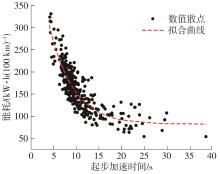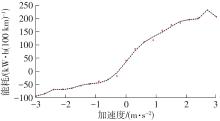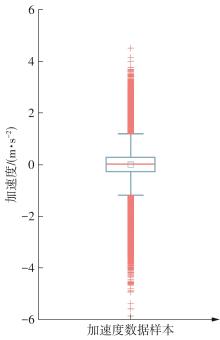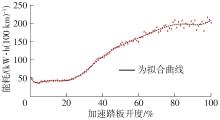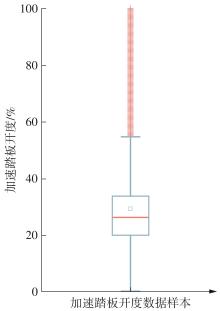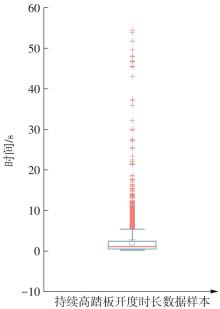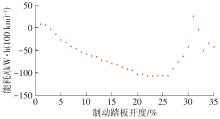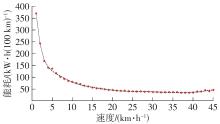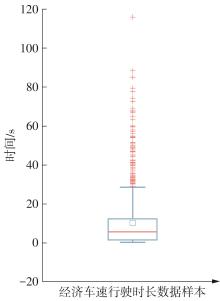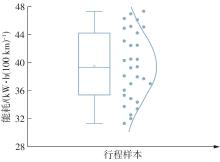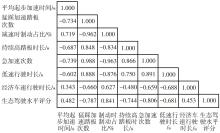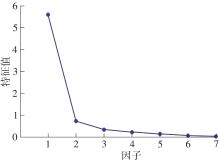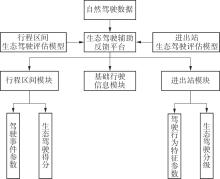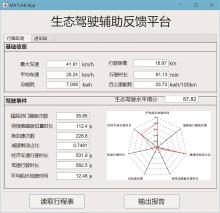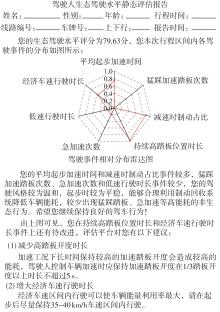| [1] |
MINTSIS E, VLAHOGIANNI E I, MITSAKIS E. Dynamic eco-driving near signalized intersections:syste-matic review and future research directions[J].Journal of Transportation Engineering,Part A:Systems,2020,146(4):04020018/1-15.
|
| [2] |
BERRY I M .The effects of driving style and vehicle performance on the real-world fuel consumption of US light-duty vehicles[D].Cambridge:Massachusetts Institute of Technology,2010.
|
| [3] |
HOLDSTOCK T, SORNIOTTI A, EVERITT M,et al .Energy consumption analysis of a novel four-speed dual motor drivetrain for electric vehicles[C]∥Proceeding of the 2012 IEEE Vehicle Power and Propulsion Confe-rence.Seoul:IEEE,2012:295-300.
|
| [4] |
KAMBLY K, BRADLEY T H .Geographical and temporal differences in electric vehicle range due to cabin conditioning energy consumption[J].Journal of Power Sources,2015,275:468-475.
|
| [5] |
AL-WREIKAT Y, SERRANO C, SODRE J R .Effects of ambient temperature and trip characteristics on the e-nergy consumption of an electric vehicle[J].Energy,2022,238:122028/1-9.
|
| [6] |
LAJUNEN A .Energy consumption and cost-benefit analysis of hybrid and electric city buses[J].Transportation Research Part C:Emerging Technologies,2014,38:1-15.
|
| [7] |
GONDER J, EARLEYWINE M, SPARKS W .Analy-zing vehicle fuel saving opportunities through intelligent driver feedback[J].SAE International Journal of Pa-ssenger Cars-Electronic and Electrical Systems,2012,5(2):450-461.
|
| [8] |
ZHANG Y, FU R, GUO Y,et al .Eco-driving stra-tegy for connected electric buses at the signalized intersection with a station[J].Transportation Research Part D:Transport and Environment,2024,128:104076/1-21.
|
| [9] |
WANG J, RAKHA H A .Fuel consumption model for conventional diesel buses[J].Applied Energy,2016,170:394-402.
|
| [10] |
QIU C, WANG G .New evaluation methodology of regenerative braking contribution to energy efficiency improvement of electric vehicles[J].Energy Conversion and Management,2016,119:389-398.
|
| [11] |
张红妮 .基于驾驶行为的纯电动公交车能耗规律与节能对策[D].西安:长安大学,2020.
|
| [12] |
郭淼,赵晓华,姚莹,等 .基于驾驶行为和交通运行状态的事故风险研究[J].华南理工大学学报(自然科学版),2022,50(9):29-38.
|
|
GUO Miao, ZHAO Xiaohua, YAO Ying,et al .Study on accident risk based on driving behavior and traffic operating status[J].Journal of South China University of Technology (Natural Science Edition),2022,50(9):29-38.
|
| [13] |
ZHANG Y, FU R, GUO Y,et al .Environmental screening model of driving behavior for an electric bus entering and leaving stops[J].Transportation Research Part D:Transport and Environment,2022,112:103464/1-17.
|
| [14] |
ULLAH I, LIU K, YAMAMOTO T,et al .A comparative performance of machine learning algorithm to predict electric vehicles energy consumption:a path towards sustainability[J].Energy & Environment,2022,33(8):1583-1612.
|
| [15] |
ABDELATY H, AL-OBAIDI A, MOHAMED M,et al .Machine learning prediction models for battery-electric bus energy consumption in transit[J].Transportation Research Part D:Transport and Environment,2021,96:102868/1-27.
|
| [16] |
LEE C H, WU C H .A novel big data modeling method for improving driving range estimation of EVs[J].IEEE Access,2015,3:1980-1993.
|
| [17] |
程颖,张佳乐,张少君,等 .大型货运车辆生态驾驶及节油潜力评估[J].交通运输系统工程与信息,2020,20(6):253-258.
|
|
CHENG Ying, ZHANG Jiale, ZHANG Shaojun,et al .Evaluation of eco-dring behavior and fuel-saving potential of large freight vehicle[J].Journal of Transportation Systems Engineering an Information Technology,2020,20(6):253-258.
|
| [18] |
朱江苏,王继磊,吕文芝,等 .基于多元回归的司机驾驶行为对油耗的影响[J].山东交通学院学报,2020,28(3):8-13.
|
|
ZHU Jiangsu, WANG Jilei, Wenzhi LÜ,et al .E-ffect of driver’s driving behavior on fuel consumption based on multiple regression[J].Journal of Shandong Jiaotong University,2020,28(3):8-13.
|
| [19] |
吴海东,臧力卓,肖百卉,等 .基于新能源公交大数据的驾驶行为经济性评估[J].中国公路学报,2022,35(3):177-190.
|
|
WU Haidong, ZANG Lizhuo, XIAO Baihui,et al .Evaluation of driving behavior economy based on big data of new energy bus[J].China Journal of Highway Transportation,2022,35(3):8-13.
|
| [20] |
陈晨 .城市道路驾驶员生态驾驶行为评估方法研究[D].北京:北京工业大学,2017.
|
| [21] |
涂昊然 .基于驾驶行为的纯电动汽车能耗分析方法研究[D].北京:北京理工大学,2021.
|
| [22] |
张雅丽,沈钰博,王伊 .纯电动公交车驾驶行为对能耗的影响研究[J].交通工程,2024,24(7):1-7,16.
|
|
ZHANG Yali, SHEN Yubo, WANG Yi .Research on the impact of driving behavior on energy consumption of electric buses[J].Journal of Transportation Enginee-ring,2024,24(7):1-7,16.
|
| [23] |
付锐,张雅丽,袁伟 .生态驾驶研究现状及展望[J].中国公路学报,2019,32(3):1-12.
|
|
FU Rui, ZHANG Yali, YUAN Wei .Progress and prospect in research on eco-driving[J].China Journal of Highway Transportation,2019,32(3):1-12.
|
| [24] |
严利鑫,贾乐,刘清梅,等 .基于知识图谱的生态驾驶行为研究现状及热点分析[J].公路交通科技,2022,39(4):150-159.
|
|
YAN Lixin, JIA Le, LIU Qingmei,et al .Analysis on study status and hotspots of eco-driving behavior based on knowledge graph[J].Journal of Highway and Transportation Research and Development,2022,39(4):150-159.
|
| [25] |
BEUSEN B, BROEKX S, DENYS T,et al .Using on-board logging devices to study the longer-term impact of an eco-driving course[J].Transportation Research Part D:Transport and Environment,2009,14(7):514-520.
|
| [26] |
GONDER J, EARLEYWINE M, SPARKS W .Final report on the fuel saving effectiveness of various driver feedback approaches[R].National Rene-wable Energy Lab.NREL). Golden,Colorado:[s.n.],2011.
|


